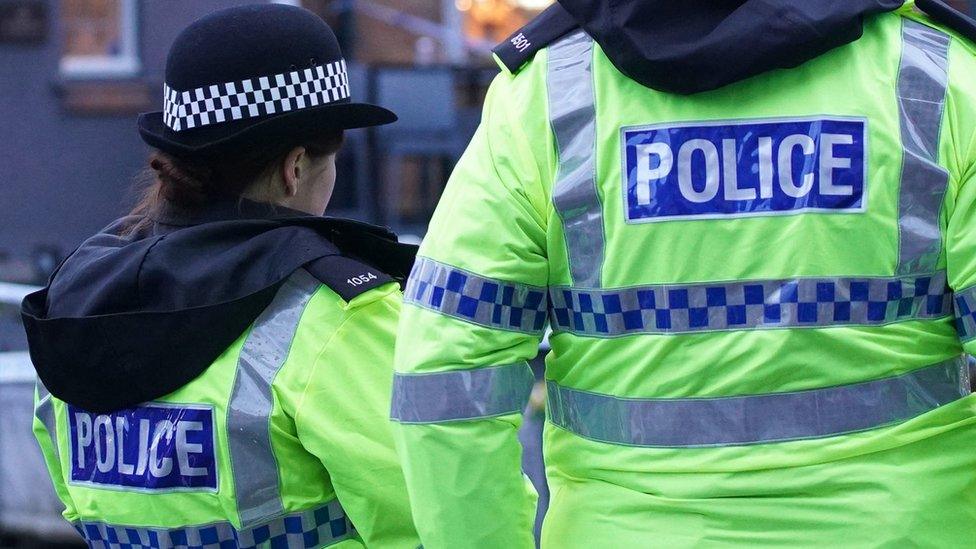Merseyside Police vows zero tolerance on drink and drug driving
- Published
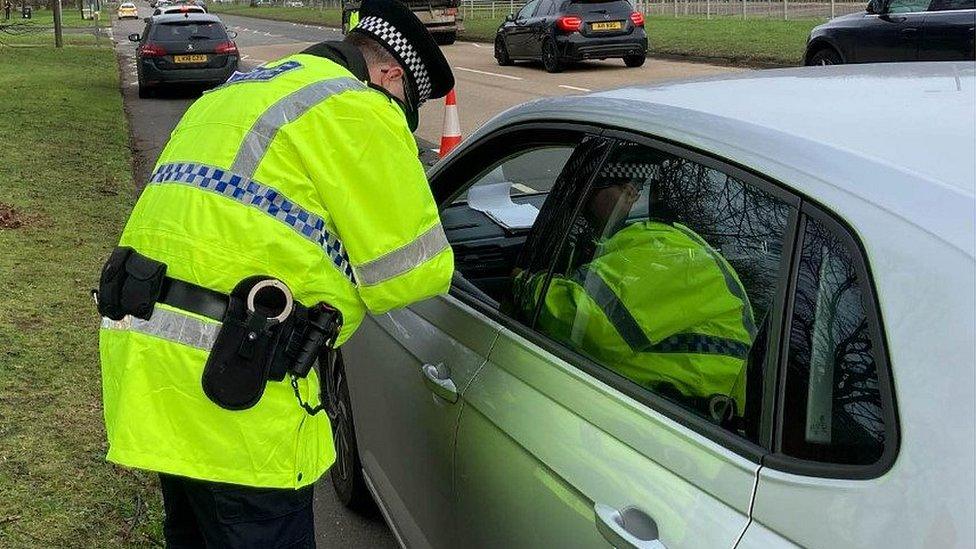
Merseyside Police is continuing checks for drink and drug drivers, beyond the end of the national campaign
A police force is pledging a zero tolerance approach to drink and drug driving as it aims to to reduce the number of the offences.
Some 2,730 drug drivers were arrested in Merseyside in 2023, an average of 53 per week.
Police and Crime Commissioner, Emily Spurrell, said "too many people" were using drugs and "getting into a car."
Merseyside Police said it hoped an education campaign would cut offending by making people "think twice".
Ch Insp Tracie Trubshaw said: "We know the use of social, recreational drugs is on the rise. We see that through our stop searches and unfortunately that's the impact that we are seeing on our roads which is worrying."
She said serious crashes, caused by drink and drug drivers, had a wider impact on extended family and friends, adding: "It doesn't just last the time of that incident, it's for a lifetime, the impact is devastating for all involved."
Force data published earlier this month, showed 469 arrests for drug driving, and 191 for drink driving between 20 November and New Year's Day.
'Stays in system'
An increase of 123 arrests in Merseyside for the same period the previous year.
The force was taking part in Operation Limit, a nationwide initiative to tackle drink and drug driving over the festive period.
Officers have since continued roadside stops on Netherton Way, Sefton, focusing on the dangers of the "fatal four": excess speed, drink and drug driving, seatbelt offences and using a mobile behind the wheel.
Ch Insp Trubshaw said, "It's just letting people know, that this is our daily business.
"What we're looking to do is educate people, we're not going to prosecute where it doesn't need to be. However, we do have zero tolerance on those offences like drink and drug drive."
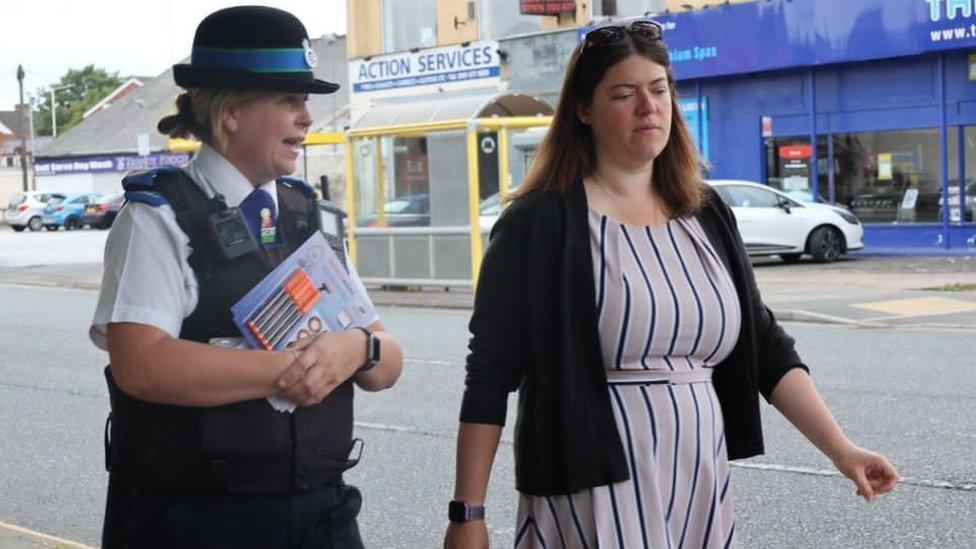
Ms Spurrell says too many people are driving after using drugs
Ms Spurrell, told BBC Radio Merseyside there had been a "shift in focus" in recent years from drink to drug driving, adding it was something the force was "alive" to.
"A lot of people don't realise quite how long drugs can stay in your system for, and quite how easy it is for that to come up on a test and make you not suitable for driving," she said.
"You might think you feel fine and you had it two days ago, but it's still in your system and you are still impaired, so a big part of the work we do through our road safety partnership is that education piece, and just really getting people to think twice."

Why not follow BBC North West on Facebook, external, X, external and Instagram, external? You can also send story ideas to northwest.newsonline@bbc.co.uk, external
Related topics
- Published3 January 2024
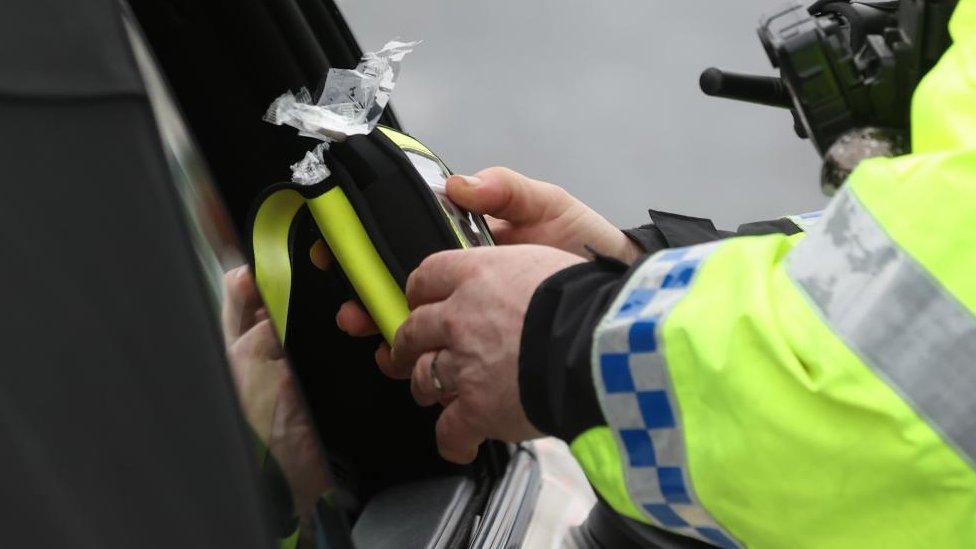
- Published7 December 2023
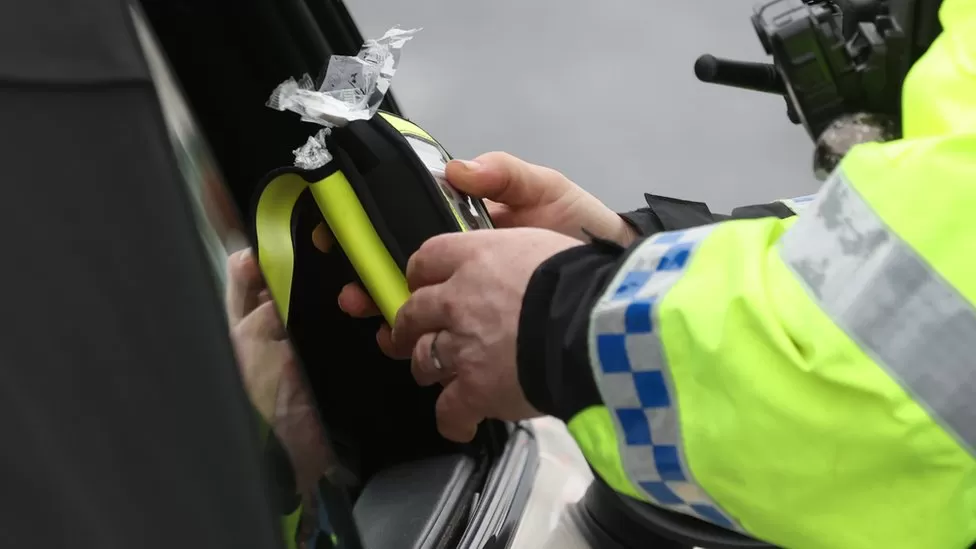
- Published12 September 2023
